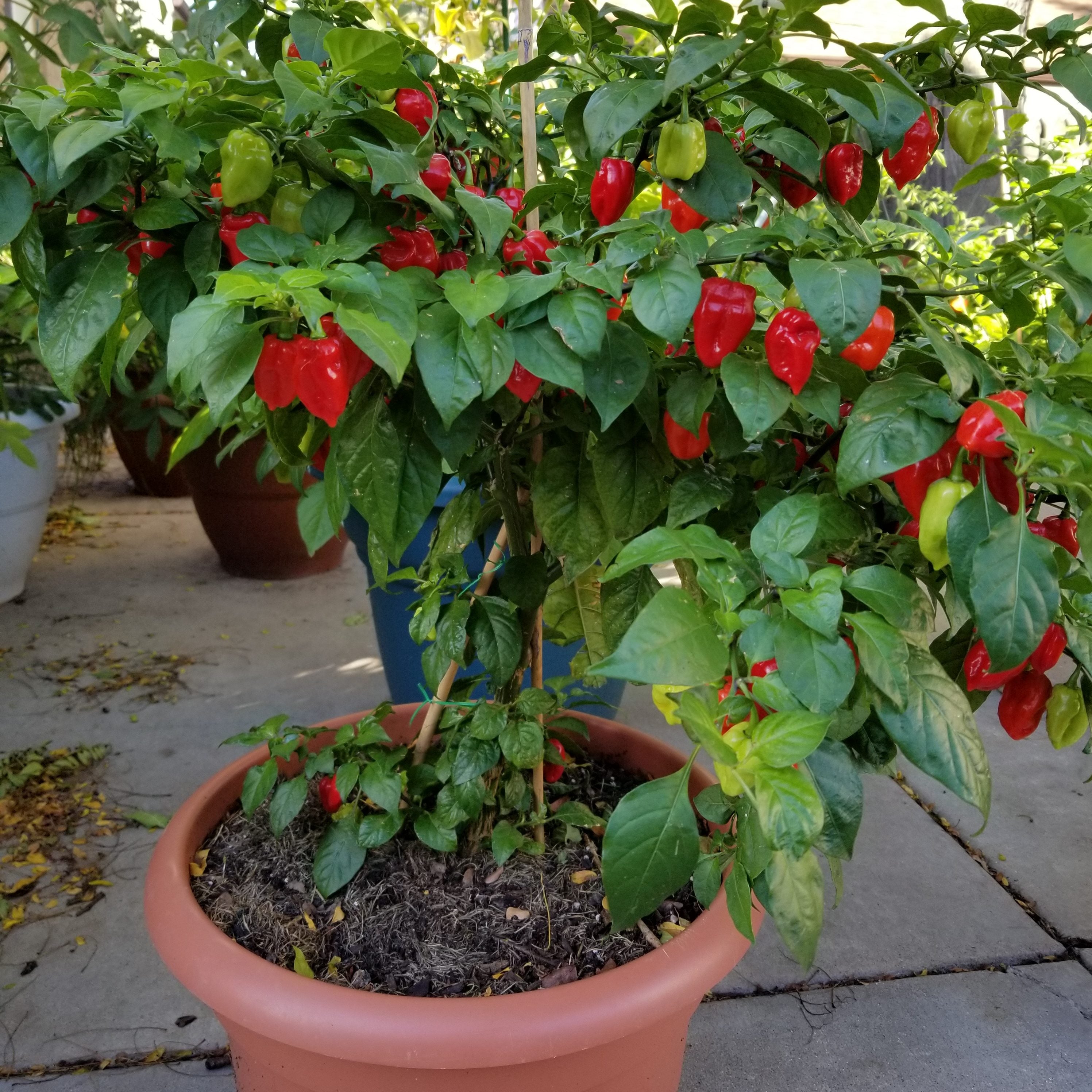Organic Vs. Synthetic Fertilizers: Which Is Best for Supporting Healthy And Balanced Pepper Plants?
In the realm of supporting healthy pepper plants, the selection between artificial and natural fertilizers stands as an essential choice with significant implications. While both options objective to offer vital nutrients to sustain plant growth, the nuances of their influence on the dirt, plant health, and the setting trigger a debate that echoes throughout the gardening neighborhood. Understanding the distinctive benefits and possible challenges of each plant food type is vital for pepper cultivators looking for to maximize their yields while keeping a lasting and eco-conscious strategy.
Advantages of Organic Fertilizers
Organic fertilizers supply a sustainable and environmentally-friendly strategy to nourishing pepper plants, offering necessary nutrients without making use of synthetic chemicals. These natural plant foods are originated from natural resources such as garden compost, manure, bone dish, and seaweed, promoting soil health and wellness and biodiversity. Unlike artificial fertilizers, organic alternatives release nutrients gradually, making certain a well balanced and stable supply for pepper plants to grow.
One considerable advantage of natural plant foods is their ability to improve dirt framework and water retention. By improving dirt health, organic fertilizers promote beneficial microbial task, which helps in nutrient uptake by pepper plants. Additionally, organic fertilizers lower the threat of chemical run-off, safeguarding water sources from air pollution and protecting the environment.
Moreover, natural fertilizers add to long-term dirt fertility by promoting the growth of advantageous soil microorganisms. These organisms assist damage down organic issue, launching nutrients in a kind that is easily available to pepper plants. best fertilizers for peppers. By promoting a healthy dirt community, organic fertilizers sustain sustainable pepper farming methods that profit both plants and the atmosphere
Downsides of Synthetic Fertilizers
Artificial fertilizers, in comparison to their natural counterparts, present numerous drawbacks when made use of to nurture pepper plants, impacting both plant health and wellness and environmental sustainability. One significant drawback of synthetic fertilizers is their tendency to leach nutrients from the dirt swiftly. This rapid leaching can result in nutrient imbalances in the soil, triggering plants to struggle with toxicities or deficiencies. Additionally, artificial fertilizers can damage helpful soil microorganisms, such as earthworms and useful bacteria, interfering with the dirt ecosystem's balance.
In addition, the overuse of artificial plant foods can add to water pollution. Excess fertilizers not absorbed by plants can clean away right into water bodies, leading to eutrophication, where algae flowers diminish oxygen levels in the water, damaging marine life. Artificial fertilizers are usually derived from non-renewable sources, such as fossil gas, contributing to carbon discharges and environmental degradation throughout their manufacturing.
Nutrient Absorption Contrast
When contrasting synthetic and natural plant foods in terms of nutrient absorption, natural fertilizers have the advantage of giving a more well balanced and slow-release source of nutrients. Organic plant foods contain a selection of macro and micronutrients that are not just beneficial for the plants however also promote healthy and balanced dirt microbial activity, which aids in nutrient uptake.
In addition, natural plant foods improve soil framework and water retention ability, allowing pepper plants to accessibility nutrients much more efficiently. This enhanced soil quality facilitates root development, making it possible for far better nutrient absorption. Synthetic plant foods, although at first increasing plant development because of their high nutrient focus, may his comment is here impede lasting nutrient absorption by derogatory soil health and wellness in time.
Ecological Effect Factors To Consider

On the various other hand, synthetic plant foods, although often even more right away offered and concentrated to plants, can have detrimental results on the environment if not applied correctly (best fertilizers for peppers). Their production needs high power inputs, causing greenhouse gas discharges and adding to environment modification. The drainage of excess synthetic fertilizers can contaminate water sources, leading to eutrophication and harming water communities.
Best Fertilizer Practices for Peppers
To achieve this, it is necessary to comply with finest plant food practices customized to the certain needs of pepper plants. One essential method is to carry out a soil examination before using any plant foods.
Another vital practice is to feed pepper plants at the correct time. Usually, peppers gain from getting fertilizer at growing and after that again when they begin to flower. Over-fertilizing can lead to vitamins and mineral discrepancies and damage site link the plants, so it is important to adhere to recommended application rates.
Furthermore, selecting a balanced plant food with an NPK proportion that fits pepper plants' demands is essential. Eventually, incorporating synthetic and natural fertilizers deliberately can assist support healthy pepper plants while lessening environmental effect.
Verdict

Organic plant foods use a lasting and environmentally-friendly technique to beneficial pepper plants, offering vital nutrients without the usage of artificial chemicals. Unlike synthetic plant foods, organic alternatives release nutrients gradually, making sure a stable and well balanced supply for pepper plants to flourish.
Artificial plant foods, in comparison to their organic counterparts, posture various negative aspects when utilized to nurture pepper plants, influencing both plant health and environmental sustainability. When contrasting artificial and organic plant foods in terms of nutrient absorption, natural plant foods have the benefit of providing an extra balanced and slow-release source of nutrients.Furthermore, organic fertilizers enhance soil framework and water retention ability, permitting pepper plants to accessibility nutrients a lot more efficiently.
Comments on “Best Fertilizers for Peppers: A Comprehensive Overview to Boost Your Harvest”